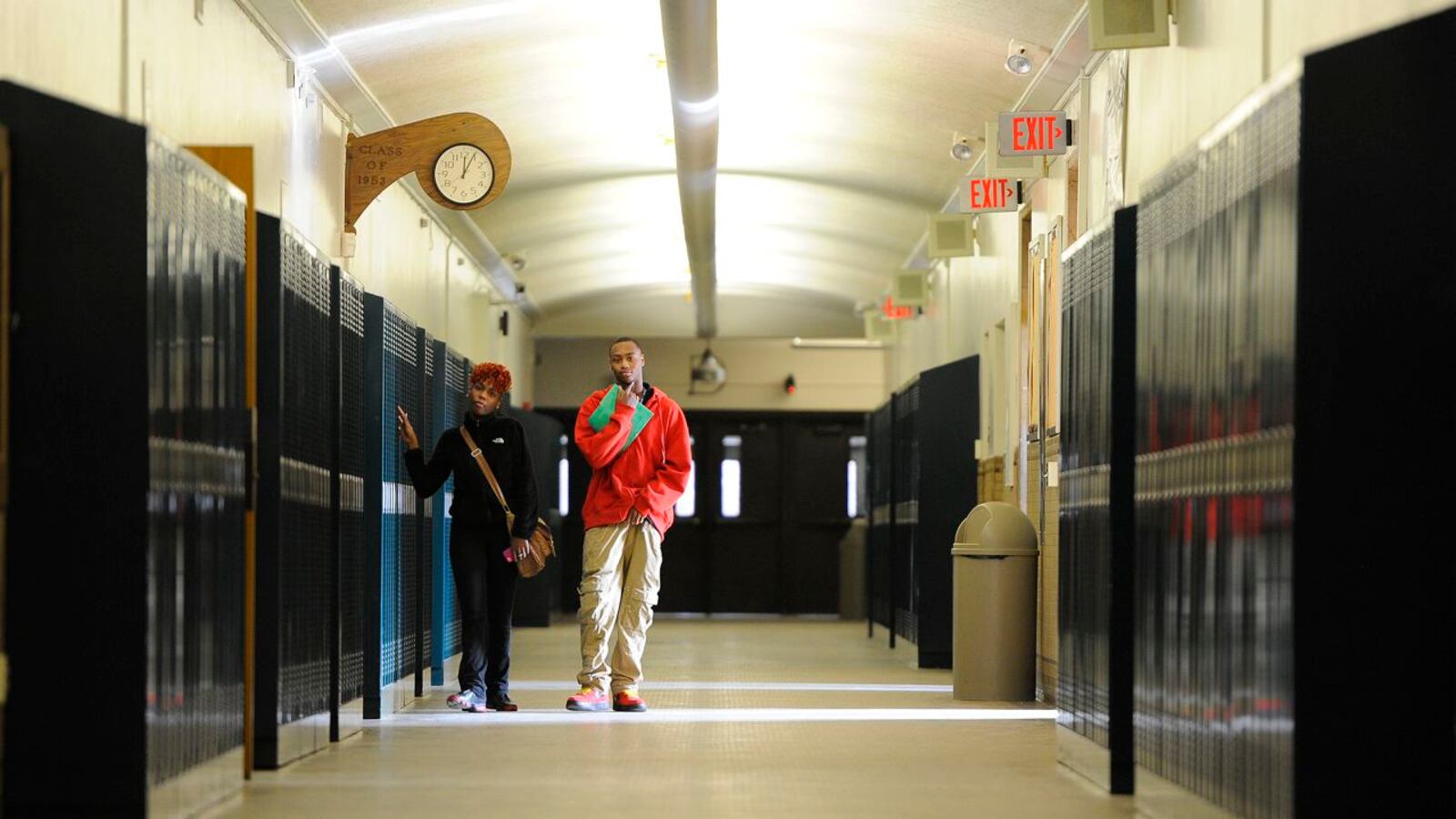Thousands of Indianapolis high schoolers are making a choice this fall that could disrupt friendships, reconfigure sports teams and shape futures: Where to go to high school.
In recent weeks, freshman, sophomores and juniors across Indianapolis Public Schools have begun choosing where they hope to go to school next year as the district closes nearly half of its high schools and pushes teens to choose their campus based on academic focus rather than neighborhood.
The district will close three high schools next fall and open magnet academies with academic and career focuses, such as health science and information technology, at the remaining four campuses.
“We want to ensure that they are choosing a high school because they want to be a part of those academies,” said Superintendent Lewis Ferebee. “That will be really important because students will be expected to dive into those academies.”
The administration has pitched the all-choice approach as a way of getting students engaged and interested in high school. But for students, the decision of where to go to school often hinges on more personal factors.
When Brandon Henderson’s family moved to Wayne Township, he was supposed to go to Ben Davis High School, which has many career and technical programs. But Henderson, a sophomore who hopes to become an engineer, said he chose to stay at George Washington High School to be with his girlfriend, Carmella Johnson.
If they have to move to another campus, so be it, said Johnson. “It’s just a school,” she added.
Johnson was not alone in her attitude. In interviews the day after the IPS board voted to create academies, some students raised concerns about the plans while others were supportive, but none seemed overly anxious about the changes.
“It don’t matter, you know. I got a spot here for next year,” said Wade Waites, a junior at George Washington. “Whatever extra activities that they might have, that I can learn something and pick up an extra career, I’m down for it, man. I’m down for it.”
The administration is requiring students in schools that will remain open, as well as students at campuses that will close, to select their top school choices. Nearly all students in magnet programs have completed the process so far and “well above” half of students in neighborhood high schools have as well, said Patrick Herrel, who oversees IPS enrollment.
Current students in magnets can choose to stay in their programs at Crispus Attucks High School, Arsenal Technical High School, and Shortridge High School. Students can also remain in the visual and performing arts and humanities programs, which are moving from Broad Ripple High School to Shortridge.
But students in traditional neighborhood high schools will be required to choose new programs. That includes hundreds of teens enrolled in George Washington and the neighborhood program at Arsenal Tech, as well as students who will be displaced when Northwest and Arlington high schools close. The exception is rising seniors at schools that will remain open, who can choose to stay at their current campuses.
The district will send students new assignments by Nov. 13, said Herrel. That will give students who are not happy with their assignments time to reapply to high schools through Enroll Indy.
“The goal is that everyone gets their first choice, and we are very hopeful that we will be able to achieve that,” Herrel said.
But if there are not enough spots in a program for all the interested students, the district will make assignments by lottery. Students at schools that are closing will get priority. But students won’t have priority to stay at their neighborhood campus, so a sophomore at George Washington, for example, could potentially be forced to move.
Even following the high school closures, IPS will have thousands of extra high school seats. But if any programs prove unexpectedly popular, it’s possible that current students could be displaced.
That was concerning to Jessica Smith, a senior at George Washington, who said that she’s unsure about the career academy plan because when students start high school, many of them don’t know what they want to do after they graduate.
Students who live in the area should be able to stay at the school, she said. “Some kids walk to school, and they don’t like taking the bus.”
The administration considered giving current students priority in the assignment lottery, said Ferebee, but it wasn’t feasible.
“If you give everybody priority,” said Ferebee. “Priority isn’t priority.”

